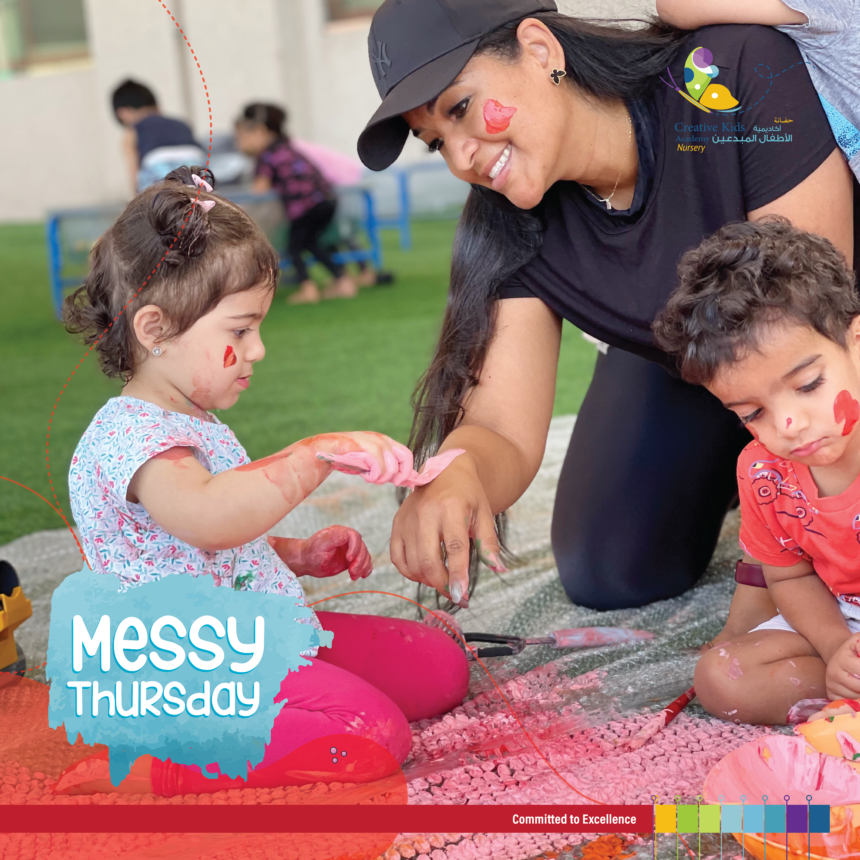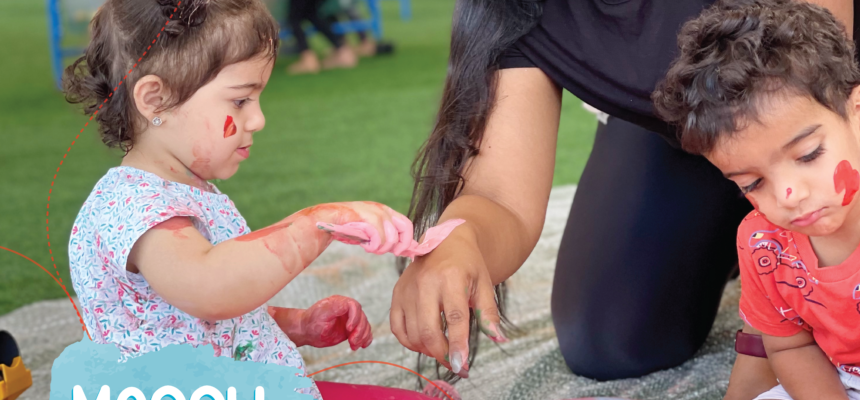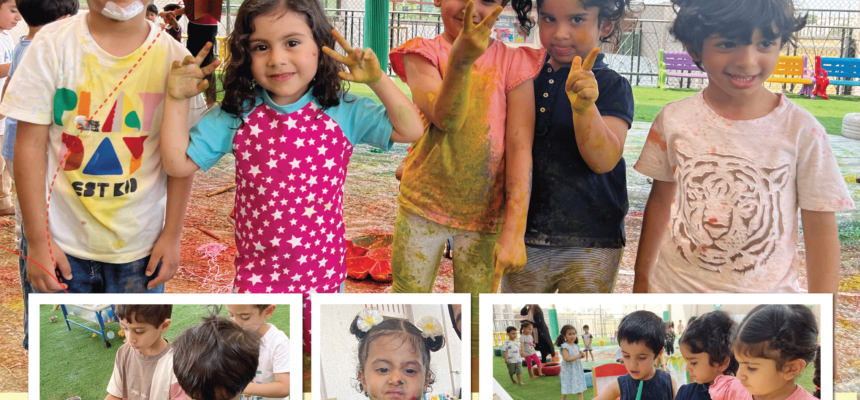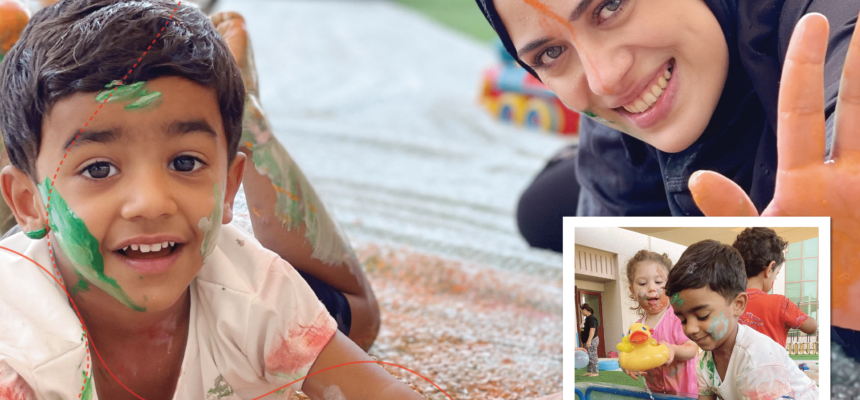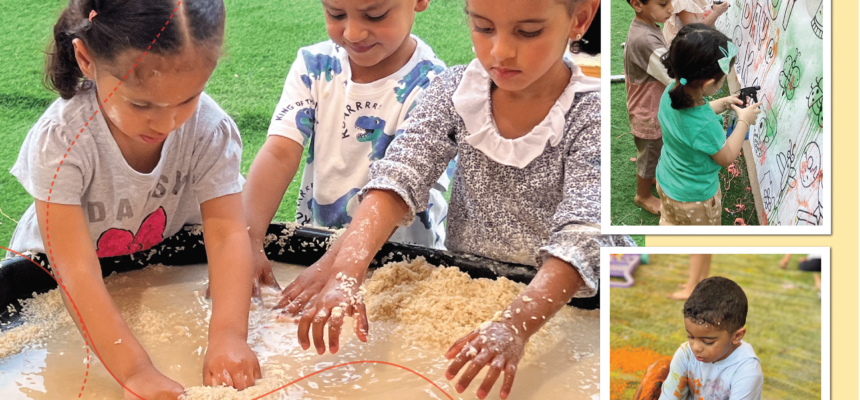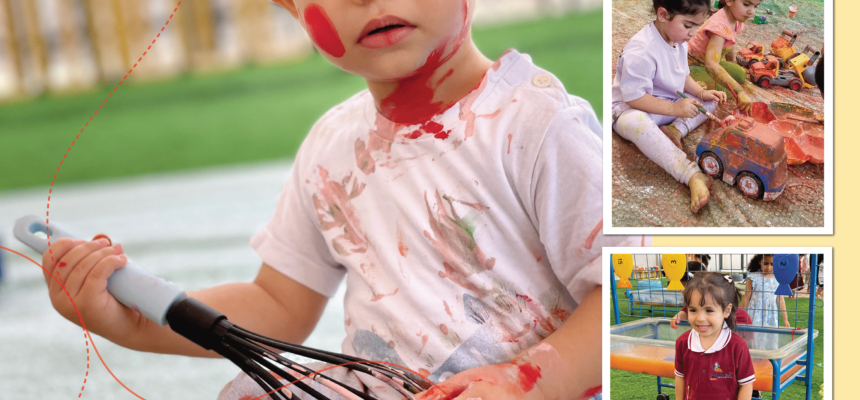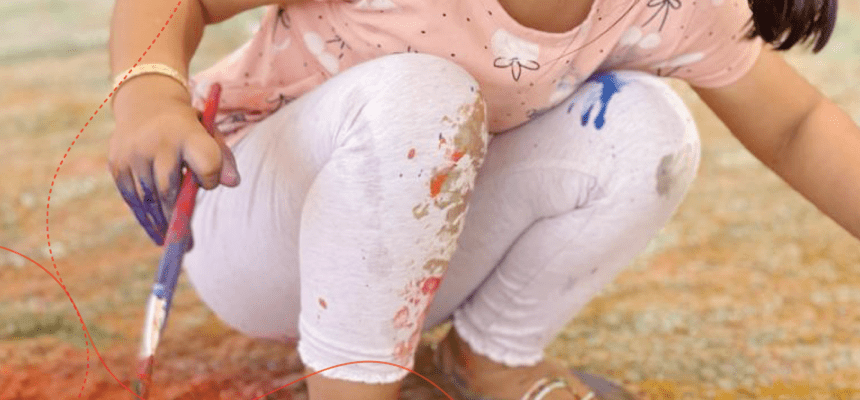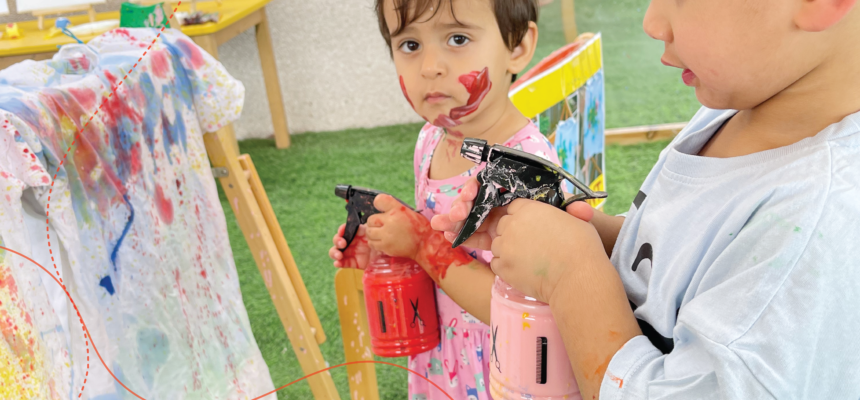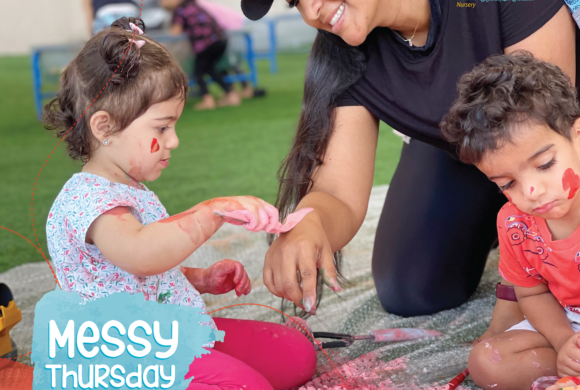 Messy play is an activity allowing children to work with their hands to create a controlled mess. Often involving traditionally messy ingredients such as paint, sand, slime, water, rice, clay or mud, it is geared toward exploring feelings and imagination.
Messy play is an activity allowing children to work with their hands to create a controlled mess. Often involving traditionally messy ingredients such as paint, sand, slime, water, rice, clay or mud, it is geared toward exploring feelings and imagination.
In CKA, our idea is to use different materials to explore various textures, getting used to different sensations using their hands and fingers or even toes and feet thereby, allowing your children to make a controlled mess so they can use their senses in a logical and educational way. Some children will be sensitive to different sensations, and messy play is a great way to ease them into new experiences without overwhelming them. while the idea of making a huge mess often puts parents off, the benefits of messy play are huge and totally worth the minimal inconvenience.
Here are some benefits of messy play;
Cognitive development: messy play for babies and children helps developing brains bridge nerve connections and assists children in learning differences and similarities. The use of sensory material creates hands-on, self-directed and self-centred play, and it encourages discovery and development.
Problem solving: With messy play, your child can increase their concentration and ability to solve problem. They begin to select and use resources appropriately and often see a task through from start to finish. Early science experiments are found in messy play (cause and effect and changing solids to liquids).
Language development: Words such as “gooey, crispy, slimy and soft” can be used when your child explores their surroundings by touching different materials. They say words like “ickys and yucks” too! This is a good sign as they are starting to make decisions on how things feel. Some materials do genuinely feel “icky”. Supporting your child’s language development, helping them understand how things feel and how to describe them is aided by adult prompts. Seeing, hearing, touching, tasting and smelling are all ways children learn to think, feel and compare their environment and the objects within it. Using multiple senses at the same time stimulates learning and language development.
Calming: Children who are agitated often calm when taking part in messy sensory play. Children engaged in sensory play often become absorbed in their activities. Playing outdoors or with sand, using scented candles to create a serene scent scape (with supervision), and the sights and sounds of bubbles and water help distract upset children and promote mindfulness.
Building relationships with others: When your child plays with friends, they will chatter along quite happily as they explore the messy materials and their senses are introducing new words into their vocabulary. An opportunity to play alongside or together is a valuable social experience for your child. Learning how to share the workspace, equipment and experiences is an excellent skill to transfer into later life. Friendships can be made in the messy play area.
Children learn to cooperate with others. Messy play is a sociable activity whether you set up a play area at home or the children are taking part in a playgroup or child care setting. Relationships are formed through conversation and exploring. Children learn to trust others and cooperate with kindness.



